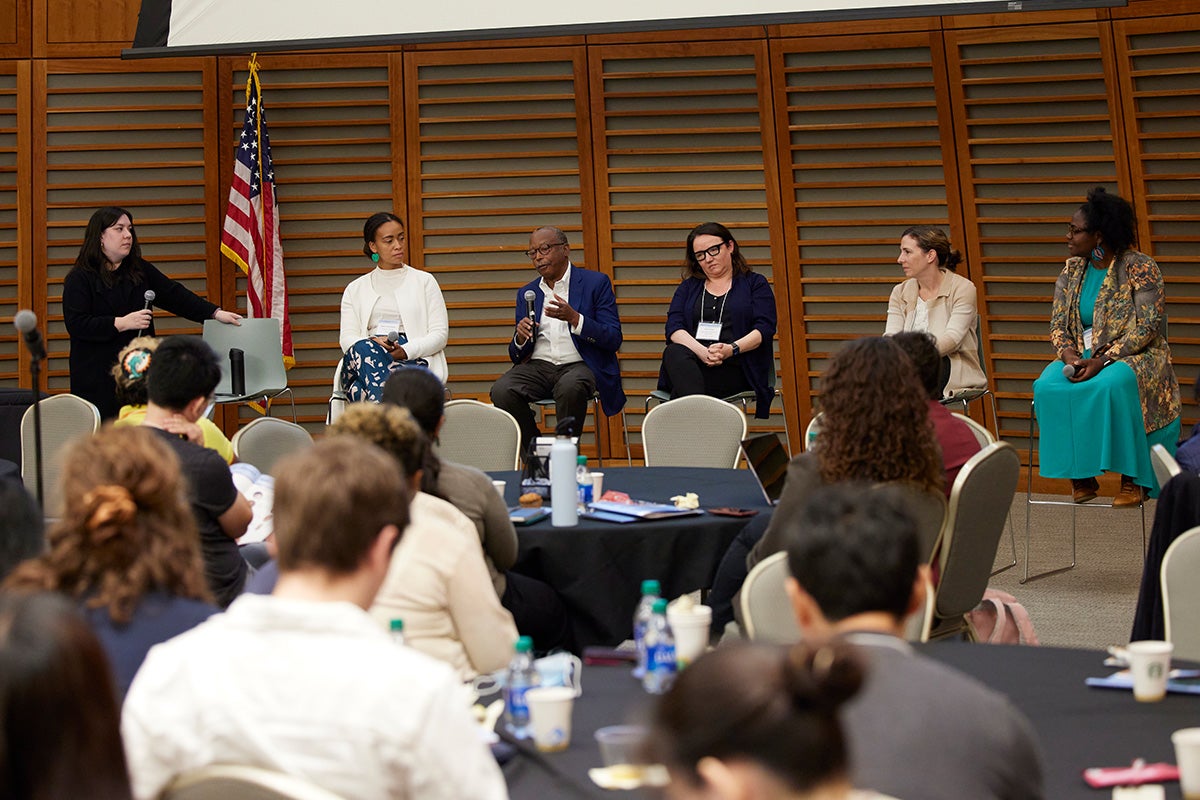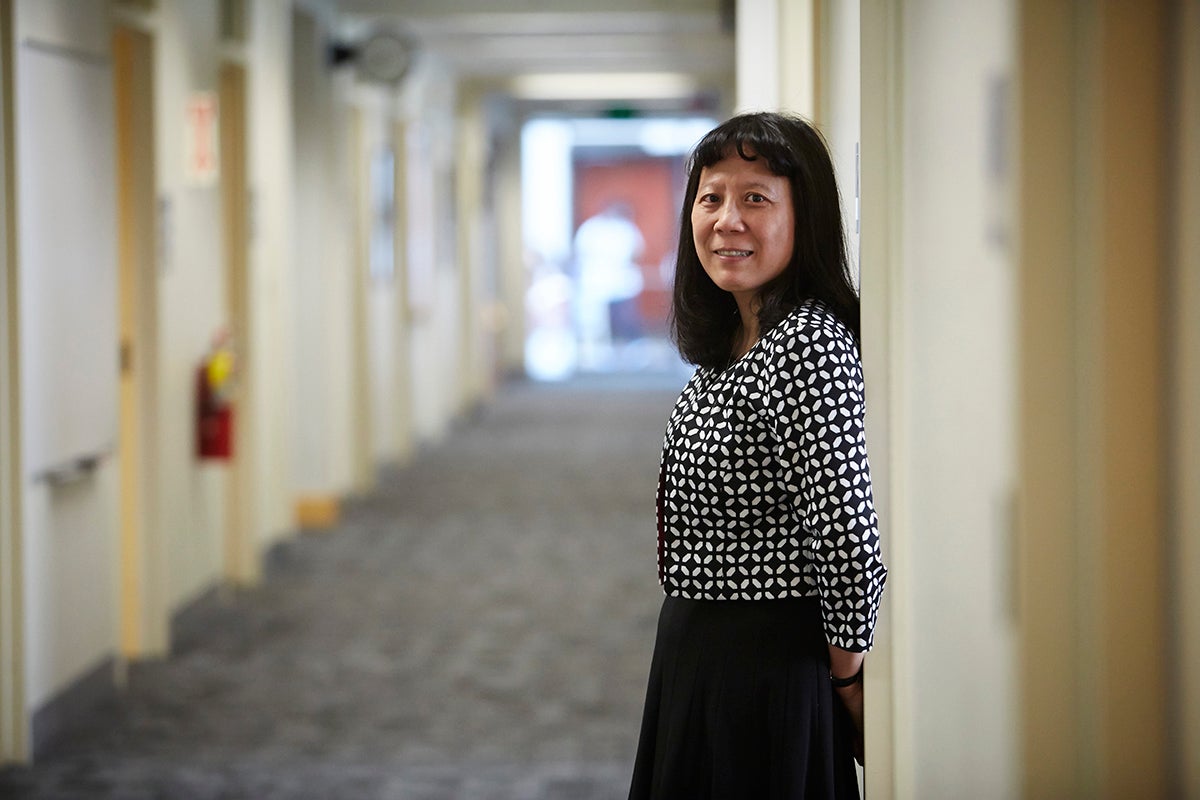Overview
Xihong Lin is Professor and Former Chair of the Department of Biostatistics, Coordinating Director of the Program in Quantitative Genomics at the Harvard T. H. Chan School of Public Health, and Professor of the Department of Statistics at the Faculty of Arts and Sciences of Harvard University, and Associate Member of the Broad Institute of MIT and Harvard.
Dr. Lin’s research interests lie in the development and application of scalable statistical and machine learning methods for the analysis of massive and complex genetic and genomic, epidemiological and health data. Some examples of her current research include analytic methods and applications for large scale Whole Genome Sequencing studies, biobanks and Electronic Health Records, techniques and tools for whole genome variant functional annotations, analysis of the interplay of genes and environment, multiple phenotype analysis, polygenic risk prediction and heritability estimation. Additional examples include integrative analysis of different types of data, Mendelian Randomization, causal mediation analysis and causal inference, federated and transferred learning, single cell genomics, analysis of epidemiological and complex observational studies, and analysis of COVID-19 epidemic data. Dr. Lin’s theoretical and computational statistical research includes statistical methods for testing a large number of complex hypotheses, causal inference, statistical and ML methods for large matrices, prediction models using high-dimensional data, federated and transferred learning, cloud-based statistical computing, and mixed models, nonparametric and semiparametric regression, and statistical methods for epidemiological studies.
Dr. Lin’s statistical methodological research has been supported by the MERIT Award (R37) (2007-2015), the Outstanding Investigator Award (OIA) (R35) (2015-2029) from the National Cancer Institute (NCI), the R01 grant from the National Heart, Lung, and Blood Institute. She is the multiple PI of a Predictive Modeling Center of the Impact of Genomic Variation on Function (IGVF) Program of the National Human Genome Research Institute (NHGRI), and the multiple PI of the U19 grant on Integrative Analysis of Lung Cancer Etiology and Risk from NCI. She is also the contact PI of the T32 training grant on interdisciplinary training in statistical genetics and computational biology. She is the former contact PI of the Program Project (P01) on Statistical Informatics in Cancer Research from NCI, and the former contact PI of the Harvard Analysis Center (U19) of the Genome Sequencing Program of the National Human Genome Research Institute.
Dr. Lin was active in the early phase of the COVID-19 pandemic. She is one of the corresponding authors of the JAMA and Nature papers on the analysis of the Wuhan COVID-19 data on transmission, public health intervention and epidemiological characteristics. She is the senior author of the 2021 Journal of the American Statistical Association Discussion paper on modeling COVID transmission dynamics in US. In Spring 2020, Dr. Lin served on the State of Massachusetts COVID-19 Task Force, and testified in the UK Parliament’s Committee of Science and Technology on COVID Responses.
Dr. Lin was elected to the National Academy of Medicine in 2018 and the National Academy of Sciences in 2023. She received the 2002 Mortimer Spiegelman Award from the American Public Health Association, the 2006 Committee of Presidents of Statistical Societies (COPSS) Presidents’ Award, the 2017 COPSS FN David Award, the 2008 Janet L. Norwood Award for Outstanding Achievement of a Woman in Statistics, the 2022 National Institute of Statistical Sciences Jerome Sacks Award for Outstanding Cross-Disciplinary Research, and the 2022 Marvin Zelen Leadership in Statistical Science Award. She is an elected fellow of American Statistical Association (ASA), Institute of Mathematical Statistics, and International Statistical Institute.
Dr. Lin is the former Chair of the Committee of Presidents of Statistical Societies (COPSS) (2010-2012) and a former member of the Committee of Applied and Theoretical Statistics (CATS) of the National Academy of Science. She is the founding chair of the US Biostatistics Department Chair Group, and the founding co-chair of the Young Researcher Workshop of East-North American Region (ENAR) of the International Biometric Society. She co-launched the Section of Statistical Genetics and Genomics of the American Statistical Association and served as a former section chair. She is the former Coordinating Editor of Biometrics and the founding co-editor of Statistics in Biosciences. She has served on a large number of committees of many statistical societies, numerous NIH and NSF review panels, and several National Academies committees.




